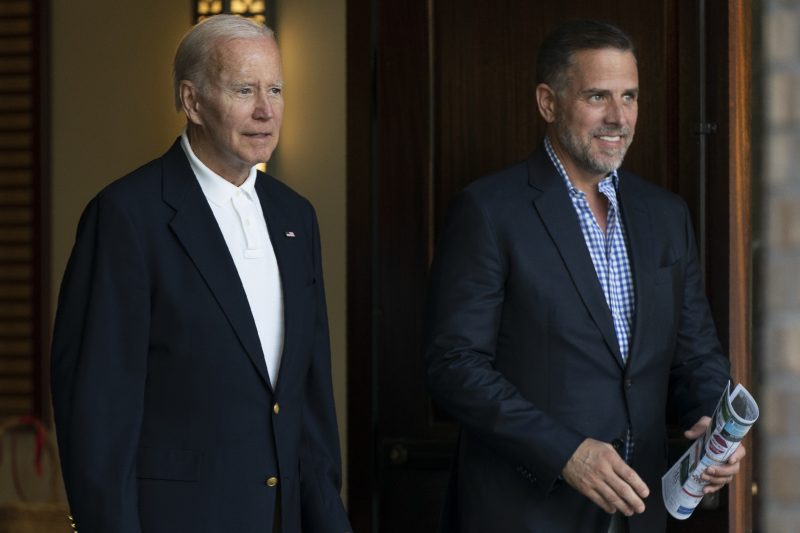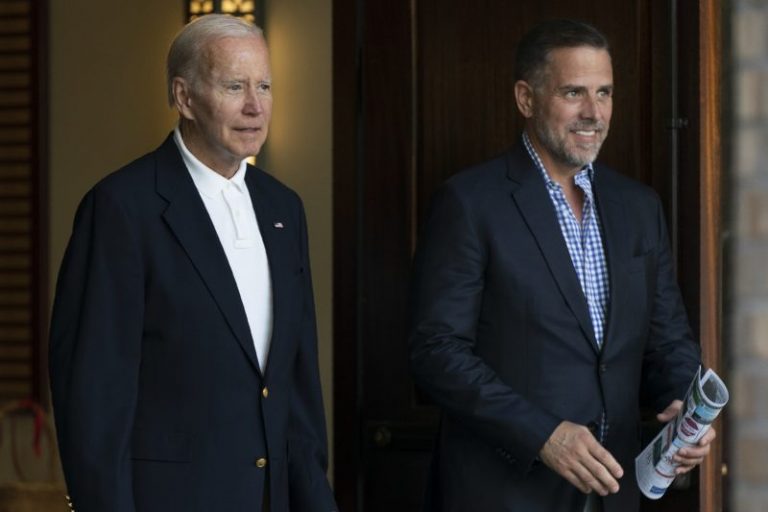
Hunter Biden is scheduled to appear next month in a Delaware courthouse, where he is expected to plead guilty to two minor tax crimes, according to court documents.
The president’s son reached a tentative agreement with federal prosecutors this week to plead guilty to the tax crimes and admit to the facts of a gun charge under terms that will probably keep him out of jail.
He is scheduled to enter his pleas on July 26 in front of U.S. District Judge Maryellen Noreika, who must approve the terms of the agreement.
The probe was opened in 2018, during the administration of President Donald Trump. Delaware U.S. Attorney David Weiss, a Trump administration holdover, has remained in charge of the case.
Republican politicians have repeatedly accused Hunter Biden of broad wrongdoing in his overseas business deals and predicted that the Biden administration would be reluctant to pursue the case. Attorney General Merrick Garland has said he gave Weiss complete independence to conduct the investigation.
Papers filed in federal court in Wilmington, Del., on Tuesday indicate that Hunter Biden has tentatively agreed to plead guilty to two misdemeanor tax charges of failure to pay in 2017 and 2018. A court document says that in both those years, Biden was a resident of Washington and received taxable income of more than $1.5 million, for which he owed more than $100,000 in income tax that he did not pay on time.
Prosecutors have planned to recommend a sentence of probation for the two counts, according to people familiar with the negotiations, who spoke on the condition of anonymity to describe elements of the case that are not yet public. Biden’s representatives have previously said that he eventually paid the IRS what he owed.
The second court filing is about the gun charge. In that case, Biden “has agreed to enter a Pretrial Diversion Agreement with respect to the firearm Information,” the filing says. Handling the gun charge as a diversion case means Biden would not technically be pleading guilty to that crime.
The gun purchase that led to the criminal charge happened in late 2018, at a time when, by his own telling in his autobiography, Hunter Biden was regularly abusing crack cocaine. When he filled out paperwork to buy the gun, however, he denied using drugs or having a drug problem, exposing him to a potential charge of making a false statement on the document, as well as illegal gun possession once he acquired the weapon. Biden owned the gun for less than two weeks because his then-girlfriend threw it away, according to public accounts of that time period.
Diversion is an option typically applied to nonviolent offenders with substance abuse problems.


Comments are closed.